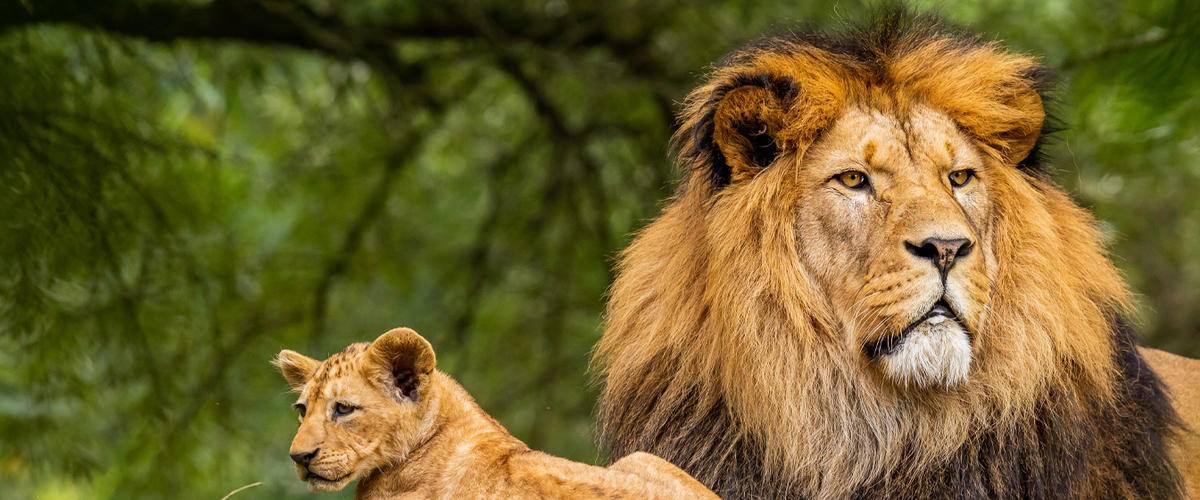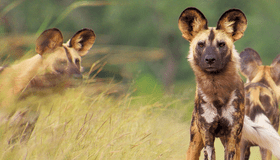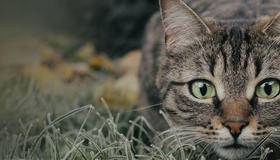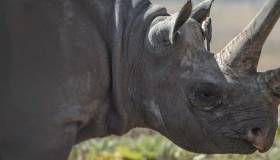
DENVER/November 12, 2021 – A recent study in African lions infected with feline immunodeficiency virus (FIV) shows secondary infections are important in disease progression, a finding that could have clinical implications for other animal and human populations affected by parasites and immunosuppressive viruses such as HIV.
That’s the conclusion of an extensive study of FIV in African lions by Morris Animal Foundation-funded researchers from Oregon State University. The team found coinfections with parasites is similar in magnitude to FIV when it comes to a lion’s overall health. The team published their findings in the International Journal for Parasitology: Parasites and Wildlife.
“This study demonstrated that coinfections are just as important as FIV on lion health,” said Dr. Heather Broughton, Courtesy Professor of research at Oregon State University, veterinary practitioner, and the study’s Principal Investigator. “We especially noted a link between the presence of gastrointestinal parasites and FIV. The parasites seem to alter the immune system in a way that drives progression of clinical diseases associated with FIV infection.”
FIV is a retrovirus that causes immunosuppression in an infected host. FIV is similar to human immunodeficiency virus (HIV) and is spread via direct contact, usually through bite and scratch wounds in lions. African lions in eastern and southern Africa have the highest prevalence of FIV infection of any wild felid, with estimates suggesting 50-83% of adults affected in several areas.
“This study shows how the interaction of different disease-causing agents affects wild animals,” said Dr. Janet Patterson-Kane, Morris Animal Foundation Chief Scientific Officer. “Studying diseases in free-ranging animals gives us a better picture of the real-world conditions that affect their health. It’s challenging, but these studies provide important information that can guide conservation of these incredible animals.”
The Oregon State team studied 195 free-ranging lions living in Kruger National Park, South Africa, as part of a larger study on lion health, behavior and demographics. Lions were sedated and given a thorough physical examination. Blood and fecal samples also were obtained for further analysis.
The results showed that approximately 73% of lions tested positive for FIV. The team demonstrated that FIV infection had negative effects on nutrient balance, clinical health and immune system function. The team also found changes in hormones and behavior parameters that reflect increased aggression in FIV-positive hosts, which would facilitate virus transfer.
“Lion populations can, and do, persist in the presence of FIV, and the association is old and long-standing,” said Dr. Anna Jolles, Professor of Epidemiology at Oregon State University, and Dr. Broughton’s fellowship mentor. “But for the individual host, it’s a slow and sly infection that subtly undermines the animal’s functioning and health at many levels. This is the first study to show that secondary infections are just as important as the presence of FIV when we look at health.”
About Morris Animal Foundation
Morris Animal Foundation’s mission is to bridge science and resources to advance the health of animals. Founded in 1948 and headquartered in Denver, it is one of the largest nonprofit animal health research organizations in the world, funding more than $142 million in critical studies across a broad range of species. Learn more at morrisanimalfoundation.org.




